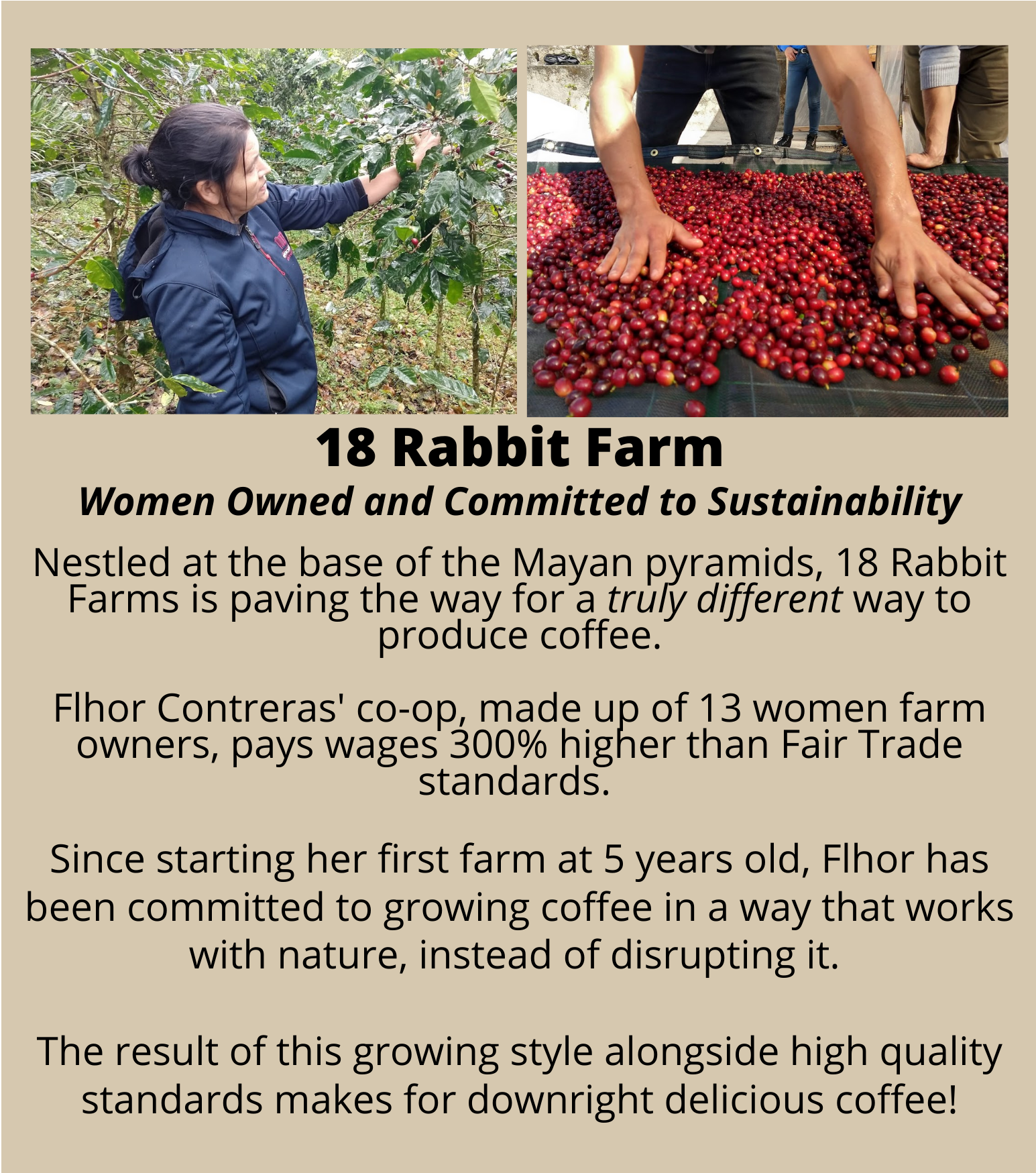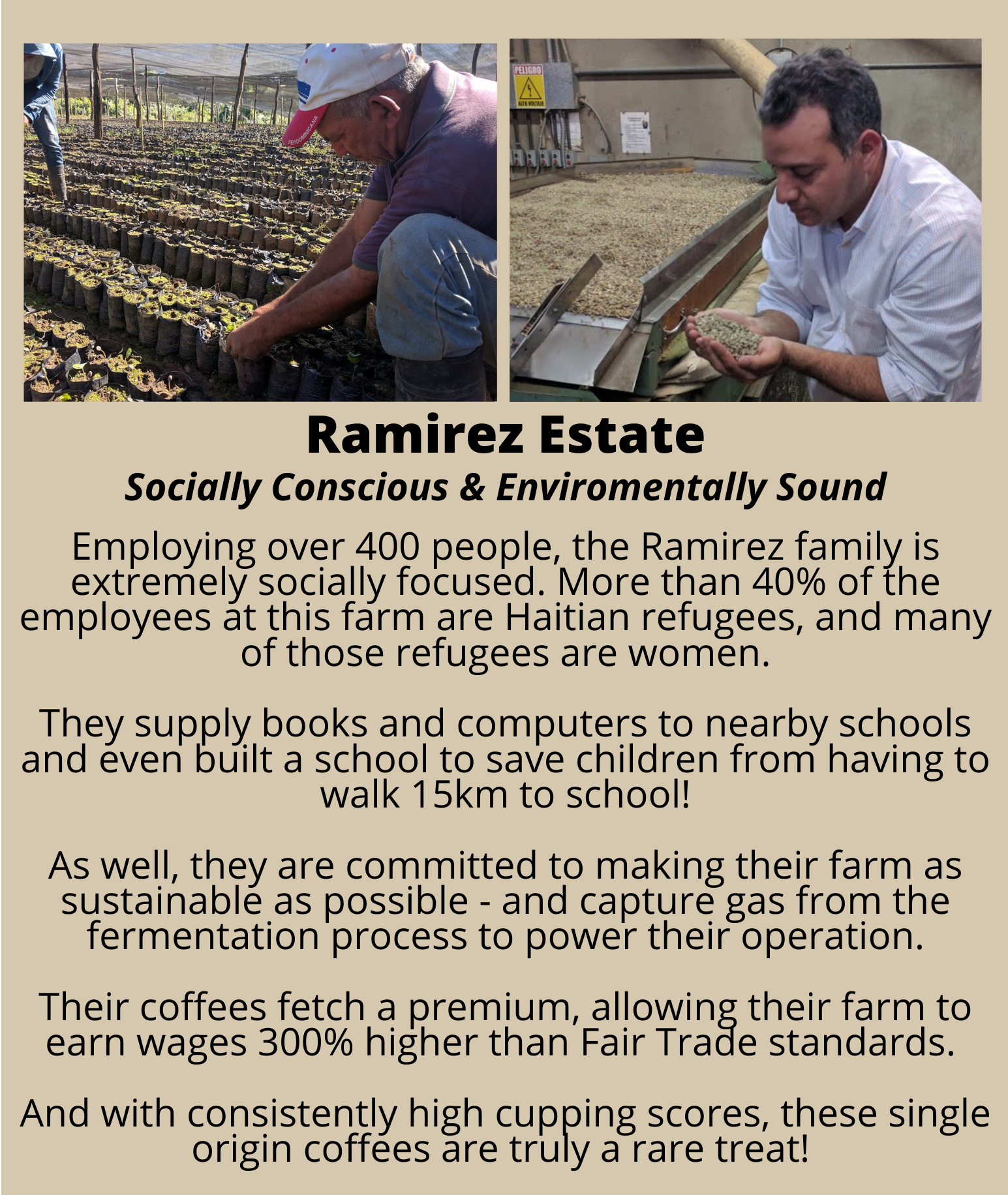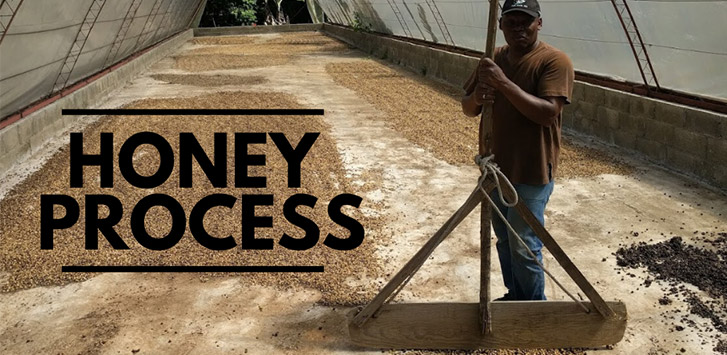
You may be surprised to hear - Honey Process coffees are all sweet, and no honey is used in the process at all! The process gets its name because the sticky (honey-like) outer layer of the fruit,called mucilage, is left behind for the drying process. Depending on how long the beans are left to age (and how much light they are exposed to), determines the color classification.
Yellow Honey: Exposed to the most light, and turned to dry more quickly
Red Honey: Dried up to 2 weeks, usually dried in the shade to dry more slowly
Black Honey: Dried up to 3 weeks, the most sheltered from light - the most labor-intensive and expensive of honey processed coffee.
Taste the difference yourself!
Try All Three: Honduras 18 Rabbit Farm
Try the same bean in three different processes to compare and taste the difference!

Maple aroma, green apple, strong sugarcane undertones, and honey finish.
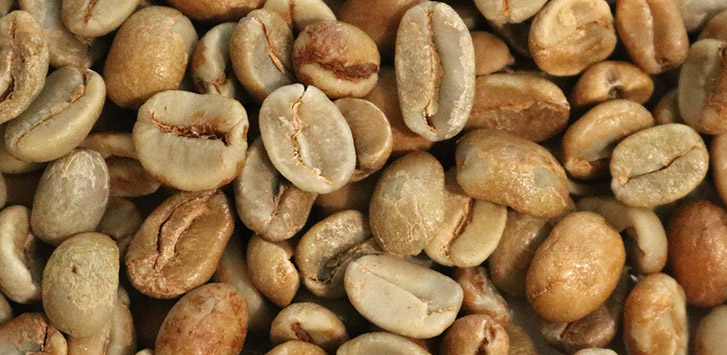
Chocolate aroma that carries into the cup, silky body, citrus, and tart fruit.
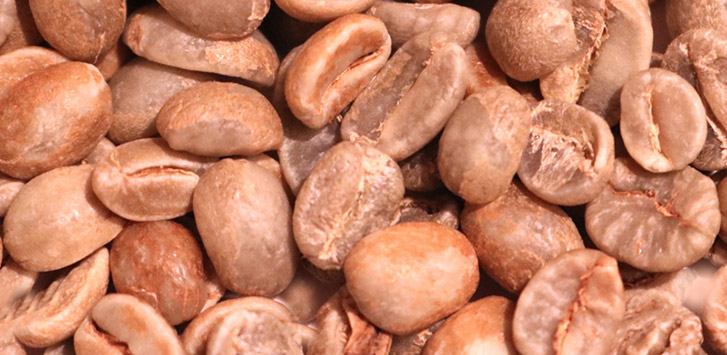
Apple cider and caramel, balanced sweet, and crisp cup.
Try all Four: Dominican Republic Ramirez Estate
Try the same bean in four different processes to compare and taste the difference!

SCAA Score: 89
Heavy strawberry aroma, creamy vanilla and nut finish.
Organic Peaberry
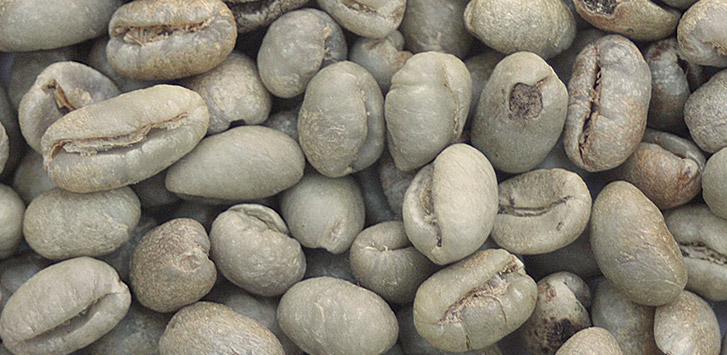
Smooth and nutty with citrus acidity, sweet vanilla cedar undertones.
Organic Natural
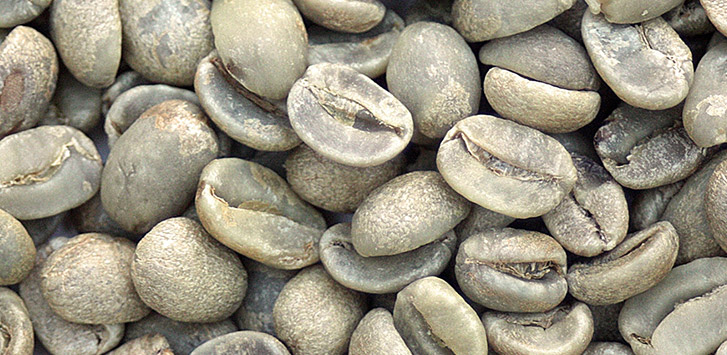
SCAA Score: 85.5
Almonds, walnuts, chocolate, low acidity, creamy body.
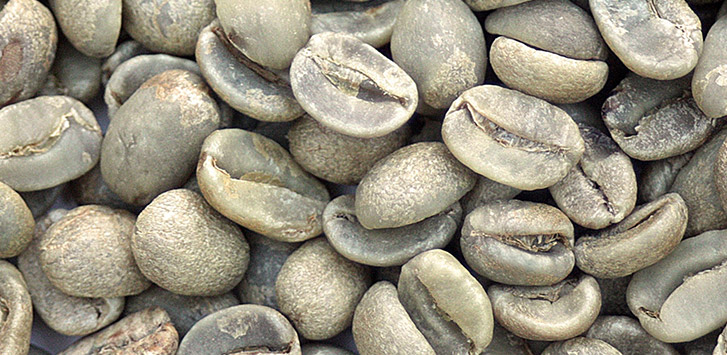
Buttery smooth body, complex and chocolatey at darker roasts.
Meet the Farms
Our Honey Process coffees come from 18 Rabbit Farms in Honduras and the Ramirez Estate in the Dominican Republic.
18 Rabbit Farm
Women-owned and Committed to Sustainability
Nestled at the base of the Mayan pyramids, 18 Rabbit Farms is paving the way for a truly different way to produce coffee. Fihor Contrera's co-op, made up of 13 women farm owners, pays wages 300% higher than Fair Trade standards. Since starting her first farm at 5 years old, Fihor has been committed to growing coffee beans in a way that works with nature, instead of disrupting it. The result of this growing style, alongside high quality standards makes for downright delicious honey process coffee!
Ramirez Estate
Socially Conscious and Environmentally Sound
Employing over 400 people, the Ramirez family is extremely socially focused. More than 40% of the employees at this farm are Haitian refugees, and many of those refugees are women. They supply books and computers to nearby schools and even built a school to save children from having to walk 15km to school! As well, they are committed to making their farm as sustainable as possible - and capture gas from the fermentation process to power their operation. Their coffees fetch a premium, allowing their farm to earn wages 300% higher than Fair Trade standards and with consistently high cupping scores, these single origin coffees are truly a rare treat.
